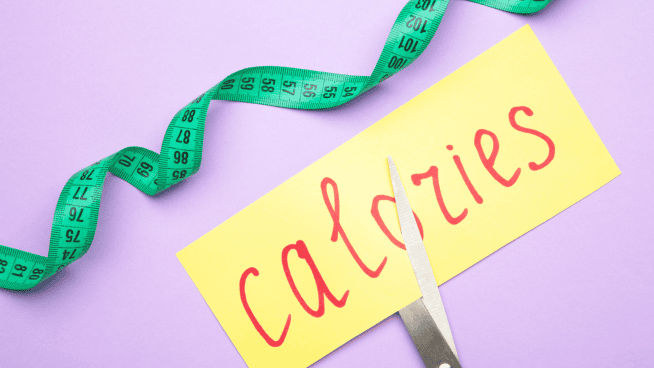Losing Weight is Not Just About Cutting Calories
The most common advice regarding weight loss is often to “eat less and move more.” While cutting calories is undeniably part of the process, losing weight is not just about slashing your caloric intake to a bare minimum.
If done incorrectly, this approach can lead to muscle loss, a sluggish metabolism, and low energy levels, all of which can be detrimental to your overall health.
The Problem with Drastic Caloric Cuts
Drastically reducing calories may result in quick weight loss, but it often comes at the expense of muscle mass. This is problematic because muscle is metabolically active. It uses more calories at rest than fat.
When you lose muscle, your metabolic rate when resting drops, making it harder to maintain your weight loss over time. Additionally, calorie restriction can lead to nutrient deficiencies, hormonal imbalances, and decreased energy levels, leaving you tired and unmotivated.
Muscle Preservation: Why It Matters
Muscles are vital for maintaining overall health, strength, and metabolic function. During weight loss, the body often breaks down muscle for energy, especially when protein intake is inadequate. This loss of muscle reduces your strength and physical performance and slows down your metabolism, making it more challenging to continue losing weight.
Preserving muscle is essential because:
- Boosts Metabolism: Muscles burn more calories at rest than fat tissue. The more muscle you have, the higher your basal metabolic rate (BMR), which means you burn more calories throughout the day—even when you’re not exercising.
- Supports Functional Strength: Muscles are essential for physical strength, balance, and overall mobility. As we age, muscle loss accelerates, increasing the risk of falls and injuries. Preserving muscle during weight loss helps maintain functional strength, promoting a more active and independent lifestyle.
- Improves Body Composition: Losing weight while preserving muscle improves your body composition. This is the ratio of body fat to lean mass in your body. This not only enhances your appearance but also has a positive impact on health markers like blood sugar levels, cholesterol, and blood pressure.
Preserving muscle and maintaining energy should be at the forefront of any weight loss plan, as these factors are essential for a sustainable, healthy, and effective journey toward your goals.
Maintaining Energy: Fuel Your Weight Loss
Energy is crucial for both physical activity and everyday functioning. When energy levels plummet due to overly restrictive diets, staying active, thinking clearly, and maintaining a positive mood becomes challenging. Weight loss should not make you feel drained and irritable; instead, it should leave you feeling empowered, strong, and energetic.
Here are some key strategies to maintain energy during weight loss:
- Prioritize Protein: The building block of muscle is protein. It plays a critical role in muscle preservation during weight loss. Consuming adequate protein helps prevent the body from breaking down muscle for energy, keeping your metabolism up. Try to include protein in every meal, such as lean meats, fish, eggs, dairy, or legumes. You can also use plant-based proteins like tofu and tempeh.
- Don’t Skimp on Carbohydrates: Carbohydrates are the body’s primary energy source, especially during high-intensity exercise. Low-carb diet plans can be effective for weight loss, but eliminating carbs can lead to fatigue and decreased performance. Instead of cutting out carbs entirely, focus on eating complex carbohydrates. This would be foods like whole grains, fruits, vegetables, and legumes. Complex carbs provide sustained energy and essential nutrients.
- Healthy Fats Are Your Friend: Fats are a dense energy source necessary for hormone production, brain function, and nutrient absorption. Healthy fats like avocados, nuts, seeds, olive oil, and fatty fish help you feel satisfied and energized.
- Stay Hydrated: Dehydration leads to fatigue, headaches, and decreased physical performance. Drinking enough water throughout the day helps keep your energy levels up and supports your metabolism. Drink at least eight glasses of water daily, more if you’re active or live in a hot climate.
- Eat Balanced Meals: A balanced meal that includes protein, carbs, and fats helps stabilize blood sugar levels, preventing energy crashes. Instead of skipping meals or snacking on empty-calorie foods, focus on nutrient-dense meals that fuel your body and keep you satisfied.
The Importance of Balance in Weight Loss
Finding balance in your weight loss journey is crucial for long-term success. Balance means integrating sustainable eating habits, physical activity, and mental well-being into your daily routine. A balanced approach ensures that you do not go to extremes, which can lead to burnout, frustration, and a yo-yo dieting cycle.
- Balanced Eating: Instead of following restrictive diets, adopt a balanced approach. Eating a mix of macronutrients (proteins, fats, and carbohydrates) in appropriate portions helps maintain your energy levels and supports muscle maintenance. Remember, all and any foods can fit into a healthy diet. However, when consumed in moderation.
- Exercise Moderation: Exercise is essential, but over-exercising can lead to injuries, muscle loss, and fatigue. Find and create a balance between cardio, strength training, and rest. Perform different types of exercises to keep your routine enjoyable and effective without overtaxing your body.
- Mind-Body Connection: Stress, sleep, and emotional health play significant roles in weight loss. Finding balance means addressing these areas alongside diet and exercise. Practices like mindfulness, meditation, or simply taking time for self-care can reduce stress and promote better sleep, which in turn supports weight loss.
- Consistency Over Perfection: Balance is not about being perfect; it’s about consistency. It’s okay to have a treat or miss a workout occasionally. What matters is maintaining a healthy routine over time. Focus on making small, sustainable changes rather than drastic, unsustainable ones.
- Listen to Your Body: Everyone’s weight loss journey is unique, and what works for one person may not work for another. Pay attention to how your body responds to different foods, exercises, and lifestyle changes. Adjust as needed to find your balance and maintain your health and energy.
Exercise: The Key to Muscle Preservation
Understand that your daily diet plan plays a crucial role in weight loss, and exercise is essential for preserving muscle and maintaining energy. Resistance training, in particular, is the best exercise to help retain muscle mass during weight loss. Incorporate strength training routine at least 2-3 times per week.
In addition to resistance training, perform cardiovascular exercises such as walking, cycling, or swimming should be included to improve heart health and burn extra calories three times a week. Combining cardio and strength training creates a balanced workout plan that supports fat loss, muscle retention, and overall fitness.
Recovery and Sleep: Underrated Components of Weight Loss
Proper recovery and adequate sleep are often overlooked aspects of a successful weight loss plan. During sleep, the body repairs tissues, regulates hormones, and builds muscle. Chronic sleep deprivation can hinder weight loss efforts by increasing cravings, reducing insulin sensitivity, and impairing muscle recovery.
Try to sleep for 7-9 hours of quality sleep per night. Make sure to incorporate rest days into your exercise routine. This is essential to allow your muscles to recover and grow. Good recovery practices, such as stretching, foam rolling, and even light activities like yoga, can help reduce muscle soreness and keep you energized.
Not all Weight Loss Plans are Created Equal
Don’t slash calories; learn to refine. Preserving muscle, maintaining energy, and fostering a healthy relationship with food and exercise depend on balance. By focusing on a balanced approach, you can keep your body strong, energized, and functioning optimally.
Remember, weight loss is a paced marathon, not a fast sprint to have good results—prioritize your health, find your balance, and enjoy the journey
Check out my book Eat to Win. It has weeks of healthy nutritional plans for breakfast, lunch, and dinner. And my book Blended Bliss is great if you love smoothies!
Check out my INSTANT STRENGTH book for total strength, speed, and power programs.
To maximize stability, mobility, and flexibility, check out my book, THE BALANCED BODY.
To see great exercises, methods, and techniques videos, subscribe to my YouTube channel, BALANCED BODY.
RECOMMENDED FOR YOU
MOST POPULAR
Losing Weight is Not Just About Cutting Calories
The most common advice regarding weight loss is often to “eat less and move more.” While cutting calories is undeniably part of the process, losing weight is not just about slashing your caloric intake to a bare minimum.
If done incorrectly, this approach can lead to muscle loss, a sluggish metabolism, and low energy levels, all of which can be detrimental to your overall health.
The Problem with Drastic Caloric Cuts
Drastically reducing calories may result in quick weight loss, but it often comes at the expense of muscle mass. This is problematic because muscle is metabolically active. It uses more calories at rest than fat.
When you lose muscle, your metabolic rate when resting drops, making it harder to maintain your weight loss over time. Additionally, calorie restriction can lead to nutrient deficiencies, hormonal imbalances, and decreased energy levels, leaving you tired and unmotivated.
Muscle Preservation: Why It Matters
Muscles are vital for maintaining overall health, strength, and metabolic function. During weight loss, the body often breaks down muscle for energy, especially when protein intake is inadequate. This loss of muscle reduces your strength and physical performance and slows down your metabolism, making it more challenging to continue losing weight.
Preserving muscle is essential because:
- Boosts Metabolism: Muscles burn more calories at rest than fat tissue. The more muscle you have, the higher your basal metabolic rate (BMR), which means you burn more calories throughout the day—even when you’re not exercising.
- Supports Functional Strength: Muscles are essential for physical strength, balance, and overall mobility. As we age, muscle loss accelerates, increasing the risk of falls and injuries. Preserving muscle during weight loss helps maintain functional strength, promoting a more active and independent lifestyle.
- Improves Body Composition: Losing weight while preserving muscle improves your body composition. This is the ratio of body fat to lean mass in your body. This not only enhances your appearance but also has a positive impact on health markers like blood sugar levels, cholesterol, and blood pressure.
Preserving muscle and maintaining energy should be at the forefront of any weight loss plan, as these factors are essential for a sustainable, healthy, and effective journey toward your goals.
Maintaining Energy: Fuel Your Weight Loss
Energy is crucial for both physical activity and everyday functioning. When energy levels plummet due to overly restrictive diets, staying active, thinking clearly, and maintaining a positive mood becomes challenging. Weight loss should not make you feel drained and irritable; instead, it should leave you feeling empowered, strong, and energetic.
Here are some key strategies to maintain energy during weight loss:
- Prioritize Protein: The building block of muscle is protein. It plays a critical role in muscle preservation during weight loss. Consuming adequate protein helps prevent the body from breaking down muscle for energy, keeping your metabolism up. Try to include protein in every meal, such as lean meats, fish, eggs, dairy, or legumes. You can also use plant-based proteins like tofu and tempeh.
- Don’t Skimp on Carbohydrates: Carbohydrates are the body’s primary energy source, especially during high-intensity exercise. Low-carb diet plans can be effective for weight loss, but eliminating carbs can lead to fatigue and decreased performance. Instead of cutting out carbs entirely, focus on eating complex carbohydrates. This would be foods like whole grains, fruits, vegetables, and legumes. Complex carbs provide sustained energy and essential nutrients.
- Healthy Fats Are Your Friend: Fats are a dense energy source necessary for hormone production, brain function, and nutrient absorption. Healthy fats like avocados, nuts, seeds, olive oil, and fatty fish help you feel satisfied and energized.
- Stay Hydrated: Dehydration leads to fatigue, headaches, and decreased physical performance. Drinking enough water throughout the day helps keep your energy levels up and supports your metabolism. Drink at least eight glasses of water daily, more if you’re active or live in a hot climate.
- Eat Balanced Meals: A balanced meal that includes protein, carbs, and fats helps stabilize blood sugar levels, preventing energy crashes. Instead of skipping meals or snacking on empty-calorie foods, focus on nutrient-dense meals that fuel your body and keep you satisfied.
The Importance of Balance in Weight Loss
Finding balance in your weight loss journey is crucial for long-term success. Balance means integrating sustainable eating habits, physical activity, and mental well-being into your daily routine. A balanced approach ensures that you do not go to extremes, which can lead to burnout, frustration, and a yo-yo dieting cycle.
- Balanced Eating: Instead of following restrictive diets, adopt a balanced approach. Eating a mix of macronutrients (proteins, fats, and carbohydrates) in appropriate portions helps maintain your energy levels and supports muscle maintenance. Remember, all and any foods can fit into a healthy diet. However, when consumed in moderation.
- Exercise Moderation: Exercise is essential, but over-exercising can lead to injuries, muscle loss, and fatigue. Find and create a balance between cardio, strength training, and rest. Perform different types of exercises to keep your routine enjoyable and effective without overtaxing your body.
- Mind-Body Connection: Stress, sleep, and emotional health play significant roles in weight loss. Finding balance means addressing these areas alongside diet and exercise. Practices like mindfulness, meditation, or simply taking time for self-care can reduce stress and promote better sleep, which in turn supports weight loss.
- Consistency Over Perfection: Balance is not about being perfect; it’s about consistency. It’s okay to have a treat or miss a workout occasionally. What matters is maintaining a healthy routine over time. Focus on making small, sustainable changes rather than drastic, unsustainable ones.
- Listen to Your Body: Everyone’s weight loss journey is unique, and what works for one person may not work for another. Pay attention to how your body responds to different foods, exercises, and lifestyle changes. Adjust as needed to find your balance and maintain your health and energy.
Exercise: The Key to Muscle Preservation
Understand that your daily diet plan plays a crucial role in weight loss, and exercise is essential for preserving muscle and maintaining energy. Resistance training, in particular, is the best exercise to help retain muscle mass during weight loss. Incorporate strength training routine at least 2-3 times per week.
In addition to resistance training, perform cardiovascular exercises such as walking, cycling, or swimming should be included to improve heart health and burn extra calories three times a week. Combining cardio and strength training creates a balanced workout plan that supports fat loss, muscle retention, and overall fitness.
Recovery and Sleep: Underrated Components of Weight Loss
Proper recovery and adequate sleep are often overlooked aspects of a successful weight loss plan. During sleep, the body repairs tissues, regulates hormones, and builds muscle. Chronic sleep deprivation can hinder weight loss efforts by increasing cravings, reducing insulin sensitivity, and impairing muscle recovery.
Try to sleep for 7-9 hours of quality sleep per night. Make sure to incorporate rest days into your exercise routine. This is essential to allow your muscles to recover and grow. Good recovery practices, such as stretching, foam rolling, and even light activities like yoga, can help reduce muscle soreness and keep you energized.
Not all Weight Loss Plans are Created Equal
Don’t slash calories; learn to refine. Preserving muscle, maintaining energy, and fostering a healthy relationship with food and exercise depend on balance. By focusing on a balanced approach, you can keep your body strong, energized, and functioning optimally.
Remember, weight loss is a paced marathon, not a fast sprint to have good results—prioritize your health, find your balance, and enjoy the journey
Check out my book Eat to Win. It has weeks of healthy nutritional plans for breakfast, lunch, and dinner. And my book Blended Bliss is great if you love smoothies!
Check out my INSTANT STRENGTH book for total strength, speed, and power programs.
To maximize stability, mobility, and flexibility, check out my book, THE BALANCED BODY.
To see great exercises, methods, and techniques videos, subscribe to my YouTube channel, BALANCED BODY.










